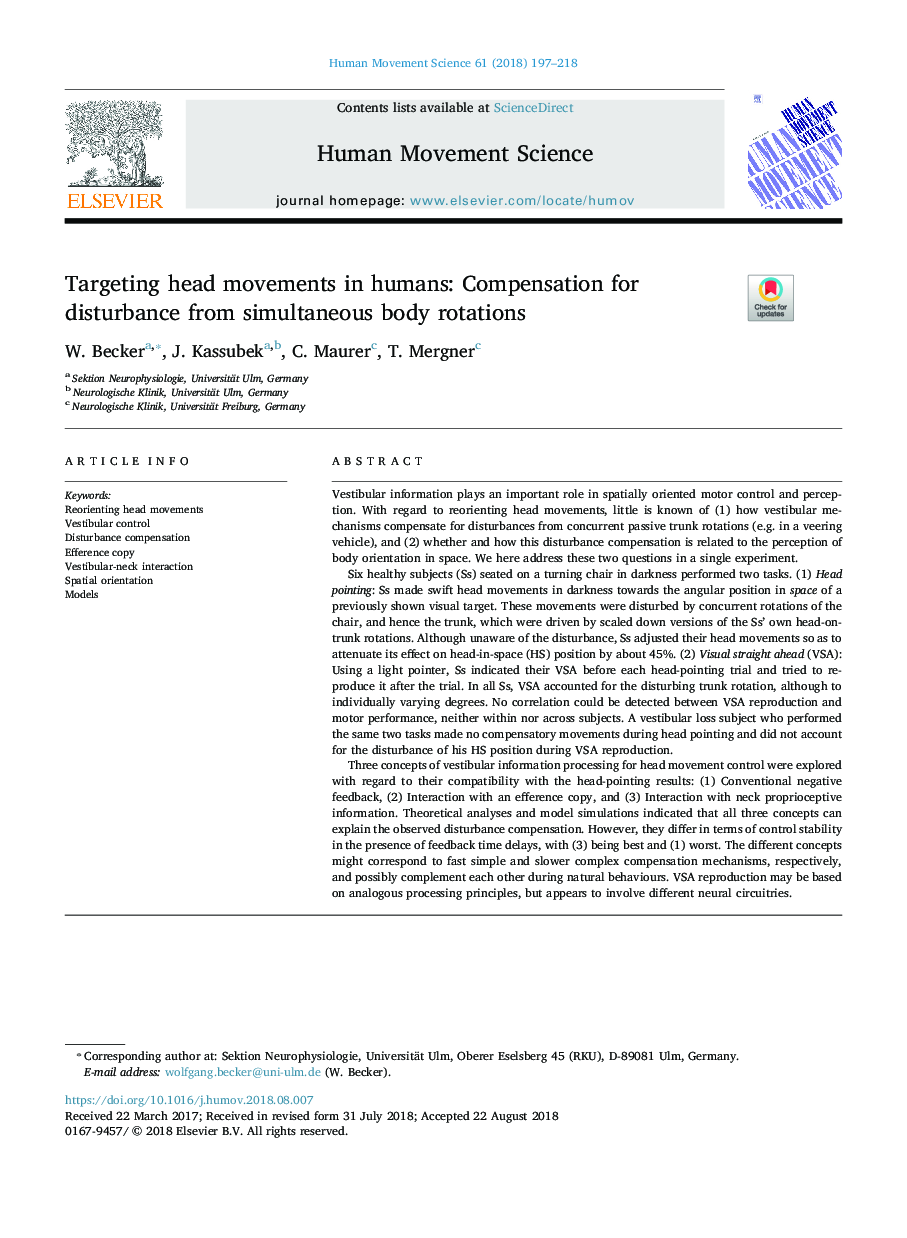| Article ID | Journal | Published Year | Pages | File Type |
|---|---|---|---|---|
| 11004535 | Human Movement Science | 2018 | 22 Pages |
Abstract
Three concepts of vestibular information processing for head movement control were explored with regard to their compatibility with the head-pointing results: (1) Conventional negative feedback, (2) Interaction with an efference copy, and (3) Interaction with neck proprioceptive information. Theoretical analyses and model simulations indicated that all three concepts can explain the observed disturbance compensation. However, they differ in terms of control stability in the presence of feedback time delays, with (3) being best and (1) worst. The different concepts might correspond to fast simple and slower complex compensation mechanisms, respectively, and possibly complement each other during natural behaviours. VSA reproduction may be based on analogous processing principles, but appears to involve different neural circuitries.
Related Topics
Life Sciences
Neuroscience
Cognitive Neuroscience
Authors
W. Becker, J. Kassubek, C. Maurer, T. Mergner,
